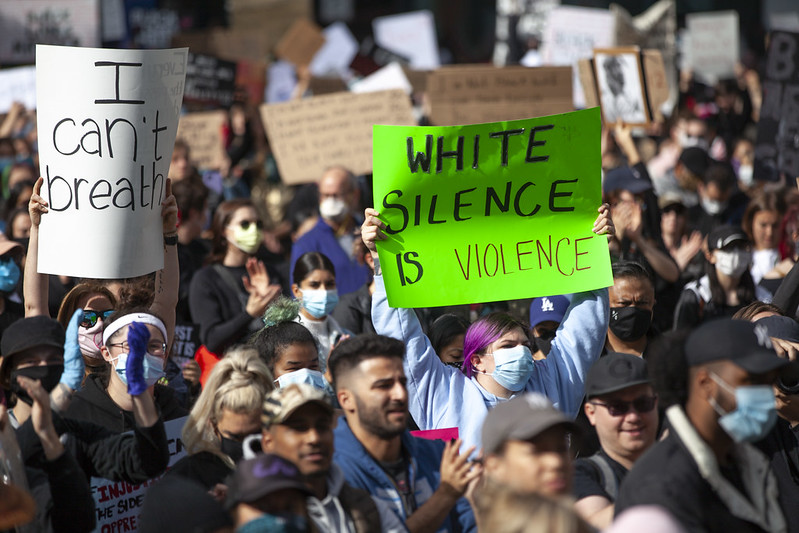When white people play the “I don’t see race” card they are either A) lying (to others and/or themselves) or B) being racist (as it follows that “not seeing race” literally means not seeing BIPOC as individual human beings with non-white lived experiences). The latter is a truism I’ve only recently been forced to uncomfortably confront even as protests against police brutality continue across the US by Americans of every color. (Though you wouldn’t necessarily know this by consuming the corporate news lately – as the liberal media prefers to hype the white-savior narrative provided by white suburban moms, the right-wing propaganda machine images of white “antifa” agitators, thereby erasing Black folks from their own story yet again. That is, when reporters aren’t focused on the overzealous federal forces, seemingly dispatched for the sole purpose of starring in the next “law and order” Trump campaign ad.)
Personally, I’ve never in my life uttered the words “I don’t see race” because, as a secular Jewish genderqueer chick, I’ve long been aware of myriad differences in relation to the default, straight white cisgender Christian patriarchy that has defined life in the US ever since our nation’s founding. (Of course that founding myth occurred on the soil of Native Americans who were here long before a white man who didn’t see race – or rather saw only his own race – decided he’d “discovered a new land.”) And herein, for me, lies the rub.
Though I’ve never claimed to not see race, as a white person (descended from Eastern European Jews who most definitely were not categorized as white when they came to this “new” world) I’ve long blithely ignored it. How else to explain that it only struck me in the past month, in the wake of the murder of George Floyd, that my two best friends in college – who’ve been my brothers for decades now – are Black men? How could I not see that my colorblindness – which I never claimed to have – is itself racist? For I’d really never thought about my brothers being Black men, any more than I’d thought about their eye color, because their identities on the queer spectrum – i.e., my own identity – had forever obscured their race to me.
In other words, I didn’t think about their code switching in the overwhelmingly white spaces that we inhabit together, and that are my comfort zone but not necessarily theirs. (I dare any self-declared “colorblind” white person to enter an entirely Black space and “not see race.”) This, even though I myself code switch when in straight spaces. And I didn’t give a thought to race, say, as one of my brothers struggled for years under the burden of student debt, while the other attended our college only by way of a hard-earned academic scholarship – even as my white middle-class father paid for both my NYU education and my Village apartment. I didn’t look too close so I didn’t think. If our current, decades-overdue cries for systemic change have revealed anything it’s that being “blind” should never be anyone’s goal. Indeed, white blindness has always been the founding problem, our original sin.
Image credit: GoToVan

